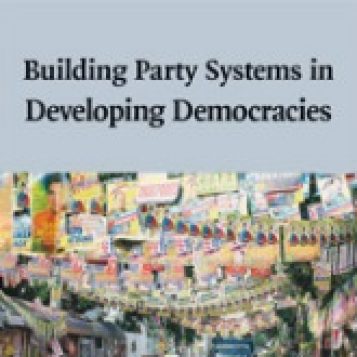Building Party Systems in Developing Democracies
Allen Hicken
This book addresses the question of why a party system with a modest number of nationally oriented political parties emerges in some democracies but not others. The number of parties and nationalization are the product of coordination between voters, candidates, and party leaders within local electoral districts and coordination among candidates and elites across districts. Candidates and voters can do and do coordinate locally in response to electoral incentives, but coordination across districts, or aggregation, often fails in developing democracies. A key contribution of this book is the development and testing of a theory of aggregation incentives that focuses on the payoff to being a large party and the probability of capturing that payoff. The book relies on in-depth case studies of Thailand and the Philippines, and on large-n analysis to establish its arguments (Cambridge University Press).
Publisher: Cambridge University Press
Year of Publication: 2009


